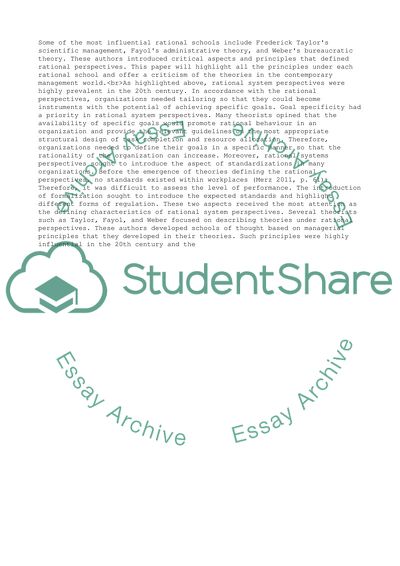Cite this document
(To what extent do rational perspectives on management continue to Essay - 2, n.d.)
To what extent do rational perspectives on management continue to Essay - 2. https://studentshare.org/management/1855240-to-what-extent-do-rational-perspectives-on-management-continue-to-dominate-and-are-they-still-relevant-to-contemporary-managers
To what extent do rational perspectives on management continue to Essay - 2. https://studentshare.org/management/1855240-to-what-extent-do-rational-perspectives-on-management-continue-to-dominate-and-are-they-still-relevant-to-contemporary-managers
(To What Extent Do Rational Perspectives on Management Continue to Essay - 2)
To What Extent Do Rational Perspectives on Management Continue to Essay - 2. https://studentshare.org/management/1855240-to-what-extent-do-rational-perspectives-on-management-continue-to-dominate-and-are-they-still-relevant-to-contemporary-managers.
To What Extent Do Rational Perspectives on Management Continue to Essay - 2. https://studentshare.org/management/1855240-to-what-extent-do-rational-perspectives-on-management-continue-to-dominate-and-are-they-still-relevant-to-contemporary-managers.
“To What Extent Do Rational Perspectives on Management Continue to Essay - 2”. https://studentshare.org/management/1855240-to-what-extent-do-rational-perspectives-on-management-continue-to-dominate-and-are-they-still-relevant-to-contemporary-managers.


